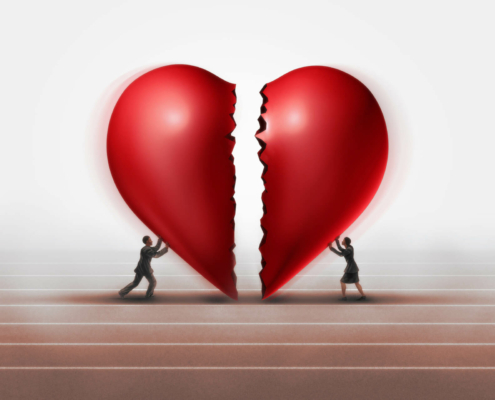The Differences between Men And Women When Eexperiencing Heartache
As in many other areas of life, when dealing with lovesickness, there are gender-specific behavioral norms, which of course can vary from person to person.
Women Want to Put behind the Pain, Men Want to Suppress It
Most women need time for themselves after a separation, regardless whether they were the ones who broke up or the ones who were left. They want to mourn and analyze the failed relationship. And they want to deal with the pain. Only when they have accepted the separation and put behind the pain do they feel able to enter into a new relationship.
The way men deal with a separation depends very much on whether they were the ones who broke up or the ones who were left. After a break-up men often seek distraction. They exercise, bury themselves with work, got to parties or look for a new partner. Men who were left, on the other hand, are usually in shock and suffer greatly. Often they view themselves as a failure in such situations. However, they do not want to admit how much they suffer, not even to their best friends or family. Even though heartache can be almost unbearable, it does not last forever. Quite the opposite, if a new woman enters their life, it can vanish as quickly as it occurred. Unlike women, most men do not properly put behind old relationships, but just move on. In general, women emerge emotionally stronger from a separation than men. A recent study by Binghampton University in New York shows that women suffer more from lovesickness, but men suffer longer.







